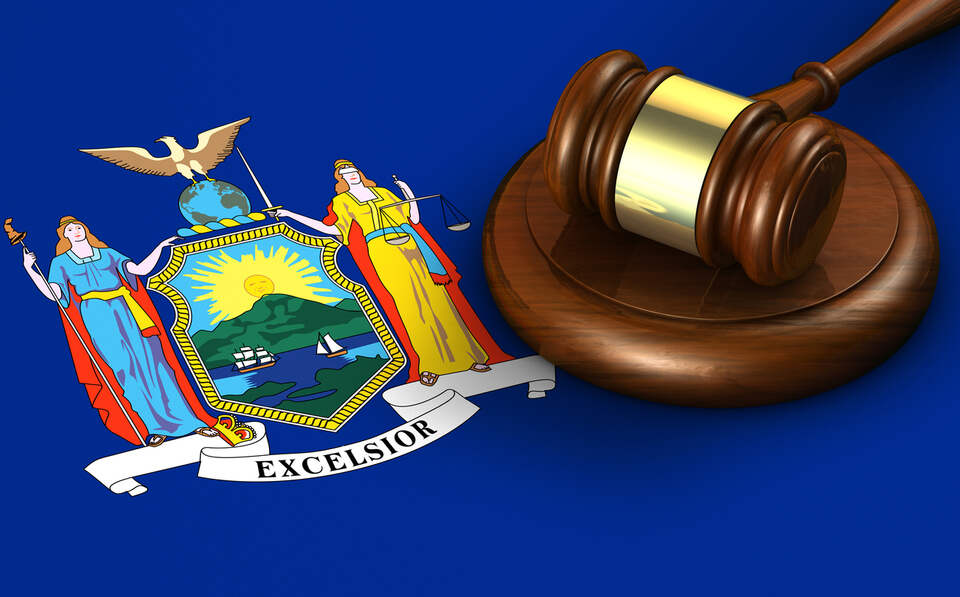
26 Sweepstakes Casinos Are Out
New York Attorney General Letitia James just dropped the hammer on the sweepstakes casino industry, issuing cease-and-desist orders to 26 online gaming platforms she says are breaking state gambling laws.
The move, made in partnership with the New York State Gaming Commission (NYSGC), is part of a growing national movement against virtual casinos that use sweepstakes coins and free-play models to mimic real-money gambling.
James made her position crystal clear: “These online sweepstakes casinos are illegal, dangerous, and can seriously ruin people’s finances.”
Why the State Says It’s Illegal
Most of these sites don’t let players gamble with traditional cash. Instead, they sell virtual sweepstakes coins, which can be redeemed for prizes or real money. That’s where the state says they cross the line.
Under New York law, any platform that lets players risk something of value for a chance to win more is considered gambling, even if real dollars aren’t directly involved in gameplay.
In short: Just because you’re using pretend coins doesn’t mean you’re not running a casino.
The Platforms Told to Shut Down
The enforcement targeted some of the biggest names in sweepstakes gaming, including:
- Chumba Casino
- Global Poker
- Luckyland Slots
- High 5 Casino
- Fliff, McLuck, FunzCity, Yay Casino, Zula Casino, and 17 others
Most of these platforms had already started to quietly withdraw from New York, but James’ order made their exit mandatory and final.
What the State Says Is at Risk
Because these platforms operate outside the reach of state regulators, players get none of the basic safeguards that licensed casinos are required to provide. That includes:
- No guarantee of fair play — There’s no way to verify whether the games are rigged, randomized, or designed to squeeze users into buying more virtual coins.
- No promise of payouts — Even if a player wins big, there’s nothing legally binding the platform to pay out those winnings, or to release payments on time.
- No protection for personal data — Players are handing over names, addresses, credit cards, and more to operators that aren’t subject to standard cybersecurity or privacy requirements.
James' office warned that users of these platforms are “completely exposed”—financially, legally, and digitally. And because there's no official channel for complaints or resolution, players have nowhere to turn if something goes wrong.
Lawmakers Rally Behind the Move
State officials were quick to back James’ enforcement:
- Senator Joseph Addabbo, who is pushing legislation to ban sweepstakes casinos entirely, warned that these platforms promote underage gambling, identity theft, and addiction.
- Assemblywoman Carrie Woerner pointed to their appeal among teenagers, calling them a gateway to gambling addiction.
- NYSGC Chair Brian O’Dwyer put it bluntly: These sites are “unscrupulous, unsecure, and unlawful.”
The Industry Pushes Back
Not surprisingly, the sweepstakes industry didn’t take the order lightly.
The Social and Promotional Games Association (SPGA), which represents some of the affected platforms, called the move “disappointing.” In a statement, the group said:
“Despite multiple attempts to engage directly with New York lawmakers and regulators, our outreach has gone ignored. Instead of working collaboratively… the state has opted for overreach.”
The SPGA maintains that these are free-to-play platforms that don’t require users to spend money to win.
New York Isn’t Alone
New York’s pushback isn’t happening as a single event, it’s part of a growing national backlash against sweepstakes-style gaming platforms.:
- Montana has already passed a full ban, making it the first in the country to formally outlaw the model.
- Connecticut and Louisiana are actively reviewing legislation that could land sweepstakes casinos in the same legal dead zone.
- Meanwhile, other states are watching closely, with several quietly drafting enforcement strategies or waiting for political momentum to act.
What was once considered a clever workaround is now drawing heat from lawmakers, regulators, and consumer advocates nationwide.
For the industry, it’s a wake-up call. If your business model depends on legal loopholes, don’t be surprised when lawmakers start slamming them shut.
